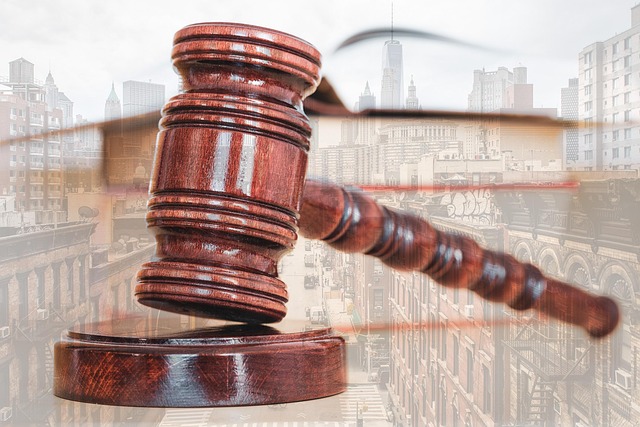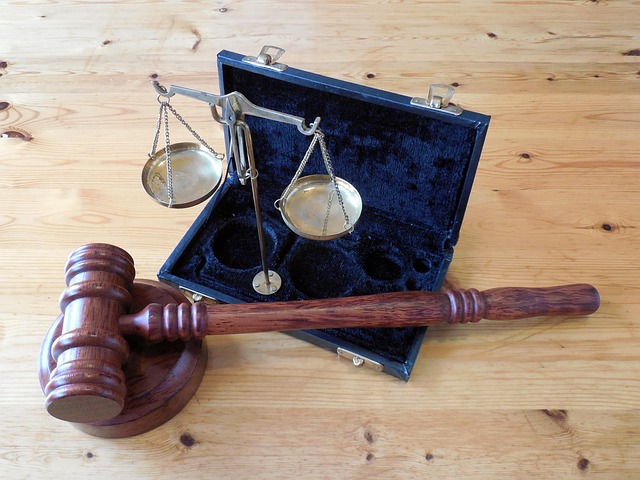Understanding sentencing guidelines is vital for criminal defense attorneys to navigate complexities of the justice system effectively. These guidelines, focused on fairness and consistency, consider crime nature, prior convictions, and mitigating factors. By comprehending their impact on penalties, lawyers build robust defenses, advocate for clients, challenge calculations, and promote just outcomes, balancing legal expertise with concern for individual circumstances. How Do Sentencing Guidelines Affect Penalties? They dictate sentences, ensuring fairness across jurisdictions, but can lead to unfairness in complex cases, especially white-collar crimes, where unique facts and individual circumstances may be overlooked. Defense attorneys play a crucial role in challenging guidelines and advocating for specific client situations to achieve equitable outcomes.
Criminal defense attorneys play a crucial role in navigating complex legal systems, ensuring justice for their clients. This article delves into the intricate world of criminal defense strategies, focusing on understanding sentencing guidelines and their profound impact on penalties. We explore how these guidelines shape case outcomes, offering insights through case studies where reality diverges from intended justice. By examining these aspects, we equip readers with knowledge to appreciate the art and science behind effective criminal defense.
- Understanding Sentencing: A Foundation for Defense
- Navigating Guidelines: Strategies for Mitigating Penalties
- Case Studies: When Guidelines Don't Reflect Justice
Understanding Sentencing: A Foundation for Defense

Understanding sentencing is a cornerstone for criminal defense attorneys. Sentencing guidelines play a pivotal role in shaping the penalties faced by their clients. These guidelines are developed to ensure fairness and consistency across all stages of the investigative and enforcement process, taking into account factors such as the nature of the crime, prior convictions, and mitigating circumstances. By understanding these guidelines, defense attorneys can navigate the complex landscape, negotiating on behalf of their clients within the respective business and political communities.
Knowing how sentencing guidelines affect penalties allows attorneys to build robust defenses. They can present evidence that highlights mitigating factors, challenge the accuracy of information used in sentencing calculations, and advocate for alternatives to harsh sentences. This strategic approach not only protects the rights of the accused but also fosters a more just and compassionate criminal justice system, reflecting principles of both legal expertise and philanthropic concern.
Navigating Guidelines: Strategies for Mitigating Penalties

Sentencing guidelines play a pivotal role in shaping the outcomes of criminal cases, significantly influencing the penalties imposed on defendants. These guidelines are designed to ensure fairness and consistency in sentencing across different jurisdictions. They consider various factors, such as the nature and severity of the crime, the defendant’s prior record, and relevant mitigating circumstances. Understanding these guidelines is crucial for Criminal Defense Attorneys as it forms the basis for crafting effective defense strategies.
Attorneys can employ several strategies to mitigate penalties based on sentencing guidelines. One approach involves presenting a robust defense that challenges the prosecution’s evidence, aiming for a complete dismissal of all charges. In white-collar defense cases, attorneys might focus on demonstrating that the defendant’s actions were not malicious but rather the result of poor judgment or misunderstanding of respective business practices. By leveraging these strategies and staying within the confines of legal parameters, attorneys can navigate the guidelines to achieve favorable outcomes for their clients.
Case Studies: When Guidelines Don't Reflect Justice

In many jurisdictions, criminal defense attorneys navigate a complex landscape when representing clients facing severe charges. Sentencing guidelines play a pivotal role in shaping outcomes, but they don’t always reflect the nuances of individual cases and circumstances. These guidelines, designed to ensure consistency, can sometimes lead to disproportionate penalties, especially in white-collar defense matters. For instance, consider a case where a CEO is accused of tax fraud—a corporate client facing charges that may not fully account for their philanthropic contributions or the positive impact they’ve had on political communities.
The guidelines might prioritize punitive measures over rehabilitative goals, resulting in harsher sentences than are warranted by the specific facts of the case. Defense attorneys must then challenge these guidelines, advocating for their clients’ unique situations to be considered. By presenting compelling case studies and highlighting the limitations of one-size-fits-all approaches, legal professionals can contribute to a more just and equitable criminal justice system that distinguishes between corporate and individual clients while acknowledging the diverse impacts on society at large.
Criminal defense attorneys play a pivotal role in navigating the complexities of sentencing, where guidelines significantly affect penalties. By understanding these guidelines and employing strategic defenses, lawyers can advocate for their clients’ rights and ensure fairness in the justice system. Case studies highlight instances where guidelines may not reflect justice, underscoring the need for adept legal representation to challenge and mitigate sentences. Ultimately, a skilled defense attorney is essential in protecting individuals from unjust penalties and advocating for proportional and equitable outcomes.






